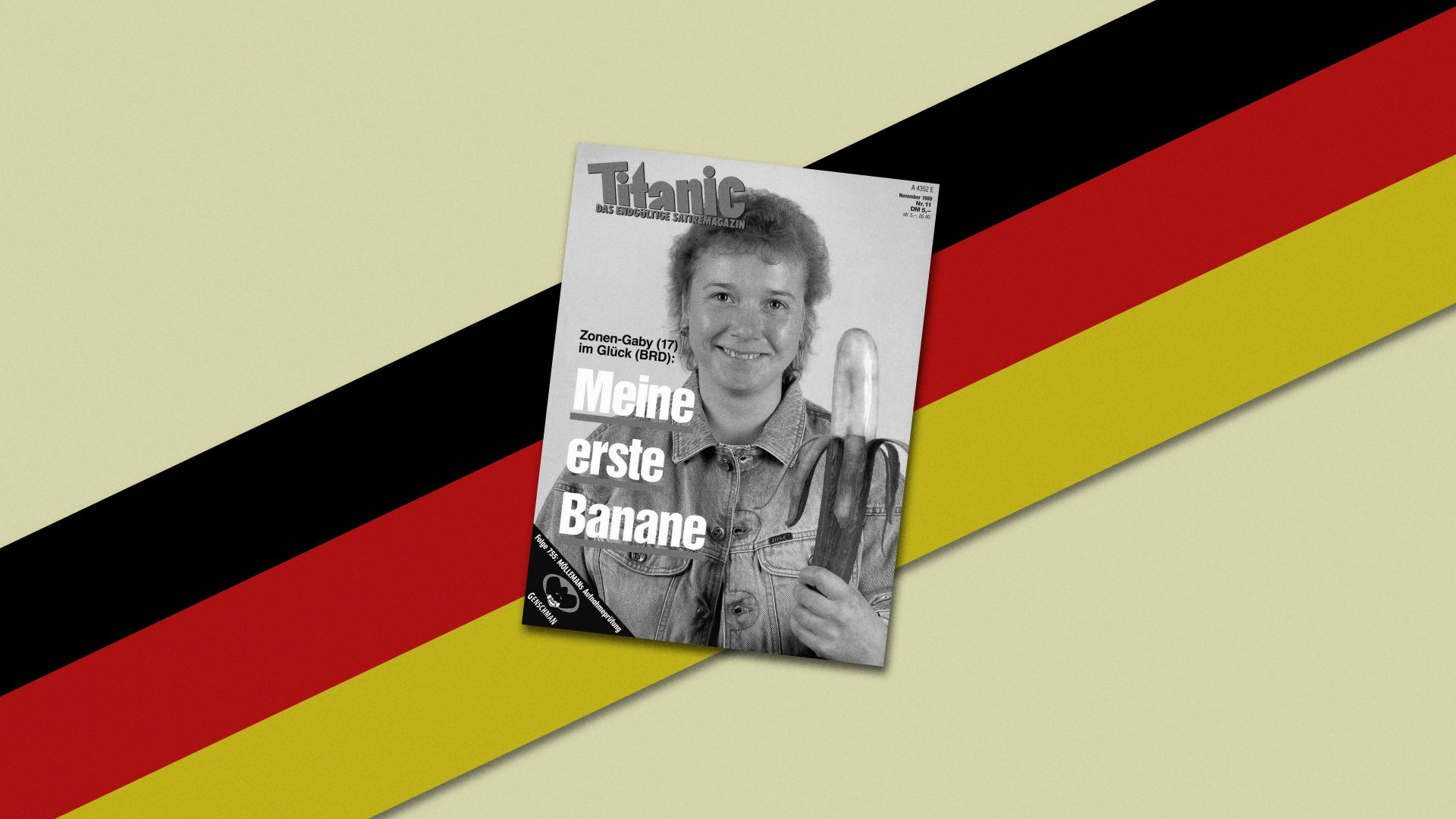If we are trying to fix our “broken politics”, is the solution really just another set of politicians? If the electoral system is at fault, might the process of government work better if it were run by a group of randomly selected citizens?
Liesa Scholzen is a politician whose constituents are the 70,000 German speakers on Belgium’s eastern border. People with an interest in new political systems are paying close attention to Scholzen’s hilltop parliament in Eupen, Ostbelgien. That’s because in 2021, as part of its Citizens’ Dialogue initiative, Ostbelgien inaugurated the world’s first official, permanent legislative body chosen not by votes, but by lottery.
Scholzen’s visitors come from round the world to learn about this new process of sortition, but Scholzen herself mostly looked bemused by their enthusiasm. “I’m just a part-time politician. And I’m a citizen too!” she reminded her audience of around 50, who had come to hear her talk about the strange new politics.
Ostbelgien’s new system takes some getting used to. It’s named “The Citizens’ Dialogue” and is led by a standing council of citizens, drawn by lot. The 24-member council serves for 18 months, and they choose the topics which are then debated by separate Citizens’ Assemblies. These assemblies have 25-50 members, also chosen by lot, who make their recommendations following two to three days of deliberation. Members meet in the evening or at weekends, and receive expenses plus €50 to €95 (£44-£84) per session. All participants are chosen from the German-speaking community.
So has it caught on? Ostbelgien’s Citizens’ Dialogue may be “well known internationally, but here some people don’t know it exists,” Scholzen explained to her visitors. “They haven’t had a real impact… When the first Citizens’ Assembly report came in, we told them: ‘You just can’t do it that way. It won’t work.’ So we just changed [some parts of] it… The Citizens’ Dialogue is still in its kinderschuhen, its ‘children’s shoes’.”
Indeed, it is only in the past decade that the worldwide movement for democracy by sortition began gaining momentum. Most of the 50 enthusiasts who gathered for an “autumn school” in Eupen, including myself, believe that it has the potential to break the logjam in governance caused by dysfunctional electoral systems. But progress has been slow.
“Even politicians don’t use words like deliberation… Nobody will understand that. Just call it a way of solving problems,” urged Peter MacLeod, a veteran Canadian activist. Macleod cut his teeth on a Citizens’ Assembly that successfully agreed political reform in Ontario way back in 2007, only to see its proposal stumble at the referendum stage.
A major early breakthrough for the movement was Belgium’s G1000. In 2011, 704 randomly chosen citizens (the target was 1,000, but there was a train strike) met for a day as part of a process to set policy priorities for future government. It was a bold bid to claw back a say in politics by Belgians frustrated by an electoral system that failed to produce a government for a record 589 days.
Since then, more than 500 randomly chosen juries, panels or larger Citizens’ Assemblies have met to deliberate on questions including climate, urban planning, organ transplants, consumer protection and children’s safety. France’s Citizens’ Assembly in 2019-20 on climate targets was another breakthrough. The French president, Emmanuel Macron, announced a new national Citizens’ Assembly on assisted dying, to be held in 2023.
So far, most Citizens’ Assemblies have been held over a day or a few weekends and enjoy little more than advisory power. But the deliberative wave, as it is known after a seminal OECD report, is building momentum. Partly inspired by Ostbelgien, the city council of Paris has set up a permanent citizens’ council chosen by lot. The French-speaking parliament of Brussels has started a system of committees that mix randomly selected citizens with MPs to consider divisive topics. Most recently, the federal region of Brussels launched a permanent Citizens’ Assembly on climate. Among those at Eupen, one third worked for municipalities, governments, political parties or parliaments, mostly in Belgium and the Netherlands. Others were activists and thinkers from Canada, the US, Germany and Japan.
Aside from Peter MacLeod, prominent activists in Eupen included G1000 co-founder David Van Reybrouck, whose 2013 book Against Elections has now been translated into 22 languages; Brett Hennig, author of the finely argued manifesto An End to Politicians and leader of the Sortition Foundation (one of whose campaigns is for a randomly selected upper House of Citizens in Scotland, and another of which may soon try to turn the UK’s House of Lords into a Citizens’ Assembly); and Roman Huber, director for decades of Germany’s Mehr Demokratie (More Democracy), whose 40 staff members drive forward one of the most advanced national groups.
And yet, a transition to a new system can’t happen unless politicians agree to cede at least some power. They would have to do this knowing that, if sortition works, they risk losing their positions altogether. One answer came from Magali Plovie, president of the French-speaking Parliament of Brussels, one of Belgium’s three federal regions.
“Actually, we welcome Citizens’ Assemblies. We know we need to do things differently. Politicians are trapped in short-termism linked to elections, but we need long-term decisions… parliaments also feel they have lost power to executives, and that deliberative democracy might be a way of winning some of it back,” she told the group. “It is more the intermediary bodies like trade unions, civil society organisations and business groups that fear the extension of citizen participation.”
One German non-profit, Es geht LOS (“It’s starting”, with a pun on the German word for lot), is trying to build up both popular and politicians’ support. It organises Citizens’ Assemblies in electoral districts with the specific objective of briefing the local MP on public opinion. “The MPs are actually incredibly grateful for what we do,” said Juliane Baruck, an activist with the non-profit.
Yet only 5% to 10% of invitations to attend Citizens’ Assemblies are initially accepted. This is because people have no knowledge of them, no time to spare or just think the invitation letters are a hoax. Organisers usually ensure that those who do volunteer are representative through “stratification”, a second layer of random selection that balances gender, language, age, education and other criteria. But Baruck from Es geht LOS goes out knocking on the doors of those who don’t respond. “We trust the lottery to get a truly representative sample, so we keep trying,” she said. “I don’t try to convince those chosen. I ask them: ‘What do you need to join in?’ Already, we’ve got the positive response rate up to 22%.”
That the activists in Eupen were almost all white and highly educated may present another drawback of sortition. Van Reybrouck, also a pre-eminent writer on both the colonial history of Belgium in the Democratic Republic of Congo and the Netherlands in Indonesia, noted that from the very beginning he has framed his proposals as a “re-Africanisation” of political culture. “It is African therapy for western democracies gone astray,” he said.
A side discussion focused on how sortition still lacks a powerful narrative to reach the public. Ironically, this was underlined by the location of the Eupen event, the converted chapel of a former nunnery – those preaching that random selection produces a more advanced democracy have a long march to catch up with rival ideas. On a morning run into the Ostbelgien countryside, I found myself on a rural road that had been decked out as an uphill route for the local Christian faithful to walk and count Jesus’s stations of the cross, a story known to billions of people; back at the old nunnery, we lottocrats were still debating how many people had even heard of the word “sortition” and whether we should use it at all.
Sortition does not just have to prove itself against rivals like the new autocracies, established religions or well-known political ideologies; in the past century, elections have also established a monopoly grip in the minds of many as being the hallmark of democracy. That’s ironic, because the ancient Greeks, who invented the word, were always clear that sortition is the essential definition of democracy and that elections only produce oligarchies.
Still, the movement for democratic innovation has much energy and future potential, especially for solving what Hennig described as “wicked problems”. For instance, Citizens’ Assemblies in Ireland in the 2010s were the key that unpicked that country’s long-standing political deadlock over abortion and same-sex marriage. Van Reybrouck further showed how Citizens’ Assemblies can win popular legitimacy when a population is bitterly divided by an issue by recommending a “preferendum” instead of a binary referendum – with a menu of options for the whole population to choose from.
Back at Eupen’s German-speaking parliament, Scholzen acknowledged that “public trust in politicians is declining” and this was one reason that “everyone in this parliament gave away a bit of power [to create the Citizens’ Dialogue]. I hope this is valued… that we are considered an equal part of this new model.”
Opposition parliamentarian Andreas Jerusalem added that the presence of the randomly selected chamber had already made some debates less partisan.
Scholzen said: “We’ve all learned to communicate better, to keep each other informed; and I learned to be more in contact with citizens.” A recent assembly recommended ways to get the best out of inclusion policies in schools, which she was closely involved in as chair of the parliament’s education committee. “In the end, I am very happy with the final report on inclusion. It was very satisfying.”
Hugh Pope, a former foreign correspondent and author of books on Turkey, the Middle East and Central Asia, is currently preparing for publication in March 2023 his late father Maurice Pope’s book The Keys to Democracy: Sortition as a New Model for Citizen Power. He sits on the Advisory Board of DemocracyNext



